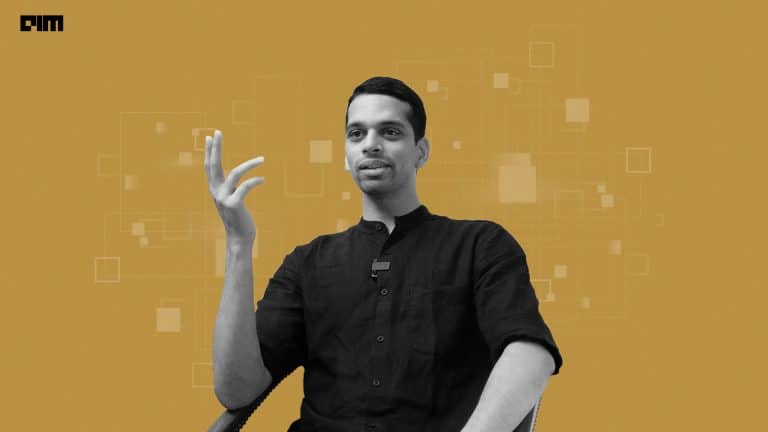|
Listen to this story
|
It is interesting how many prominent hospitals – both private and public – have Oracle’s presence in one form or another, particularly its Fusion ERP software, which has been embraced by many healthcare providers. Some of the popular names include Apollo Hospitals, Fortis, Aster Hospitals, Omega Healthcare and others.
For instance, Apollo Hospitals has implemented Oracle Fusion for complete ERP and HCM and became the first payroll customer. Fortis also relies on Oracle Fusion for its back-office operations. Meanwhile, Aster Hospitals and Omega Healthcare have integrated Oracle Fusion into their business process outsourcing (BPO) operations.
Another noteworthy success story is that of Indira IVF, which operates 108 centres across India. They faced challenges due to numerous manual processes, making consolidation and scaling difficult. With Oracle Fusion, they have witnessed a dramatic turnaround.
The technology has not only streamlined their processes but also allowed them to expand their services and onboard more patients, offering a wider range of finance options.
Bringing Cerner to India
“We have big plans to get Cerner to India,” said Oracle senior VP and regional MD, Shailender Kumar on the sidelines of the company’s flagship event ‘Oracle CloudWorld’.
Oracle’s recent acquisition of Cerner, a healthcare solutions provider could be a game changer, given its experience in cloud AI and changing healthcare workflows for maximum efficiency.
Interestingly, Cerner is dedicating its CSR funds to support the digitalisation of primary health centres (PHCs) across India. This effort aims to improve community healthcare and benefit the nation’s large population, with approximately 30,000 PHCs throughout India.
Oracle is also partnering with non-governmental organisations (NGOs) responsible for managing PHCs to implement innovative healthcare solutions. These partnerships extend to numerous PHCs, enabling Oracle to have a broad reach within the Indian healthcare landscape.
The company’s vision goes beyond digitalisation; Oracle’s executive vice president, Mike Sicilia, explained that they aim to collaborate with governments globally, including the Indian government, to develop and deploy public health dashboards.
“Our hope and goal is to work with governments worldwide, including in India, to develop and deploy public health dashboards which will be quite advantageous when there are disease outbreaks or pandemics,” Sicilia said.
He added, “Providing governments with real-time information about what’s happening in large population centres is crucial to containing and preventing the potential next health crisis.”
These dashboards would provide real-time information, which is essential for responding to disease outbreaks or pandemics effectively. Oracle recognizes the crucial role of providing governments with up-to-date information in containing and preventing health crises.
With Cerner increasing its mark in the country, it will look to acquire more clientele and establish venues to integrate its technology into the ecosystem.
Oracle to the Rescue
Today, smaller hospitals struggle with the cost of implementation, and the absence of clear EHR standards hinders interoperability. Experts believe that government incentivisation is necessary to drive EHR adoption among healthcare providers, encourage data sharing, and build common EHR systems. Without standardised EHRs, clinical data for implementing AI and big data applications remains inaccessible.
“If India could aggregate data from public hospitals, it could develop robust decision support systems, enhance diagnosis accuracy, predict disease outbreaks, and improve patient care,” Prof Rajendra Pratap Gupta, a WHO Digital Health Guidelines expert, believes.
And this is where Oracle comes in. Sicilia recently outlined the company’s intentions to engage with the Indian government in the healthcare sector, emphasising the value of cloud-based solutions.
At Oracle CloudWorld, Sicilia revealed Oracle’s plans for expanding its market in India and collaborating with governments to enhance healthcare services.
While Sicilia highlighted that India’s workforce is abundant, focusing on creating scalable, standardized cloud services instead of custom solutions is more efficient and cost-effective. He acknowledged that there is a challenge in the prevalence of bespoke applications.
The transition from bespoke applications to true Cloud services is part of Oracle’s vision for India’s healthcare sector. The goal is to offer more economical, reliable, and secure cloud services using standardised systems. Sicilia emphasised that there is value in both utility at a national level and customized solutions for specific healthcare challenges.
Some healthcare providers, such as Max Healthcare, and Bajaj Finserv are exploring EHR solutions to enhance patient care and data collection. Several others including Apollo, Columbia Asia, Narayana Health, Shankara Nethralaya, and Aravind Eyecare, are working on AI solutions for patient care.
Other tech giants are also playing key roles in the market.
In India, where there is a significant population-to-doctor ratio, Microsoft is actively collaborating with healthcare organisations including Apollo Hospitals, Forus, SRL Diagnostics, and others, to develop predictive analytics tools for cardiac diseases, diabetic retinopathy detection, and digital pathology.
On the other hand, Google is also making strides in India’s healthcare and AI sectors. At its Bengaluru event, they unveiled AI tools like a fast LLM through the PaLM API for healthcare applications.
Additionally, Google Cloud is partnering with ONDC for commerce platforms and open-sourcing ONDC infrastructure. They’re also set to launch a Trusted Tester program for healthcare AI APIs that identify medicines in handwritten prescriptions. Additionally, they’re open-sourcing research models and speech data developed with the Indian Institute of Science.
However, Deepa Param Singhal, VP of Cloud Applications at Oracle, highlighted the company’s distinct approach. She explained that Oracle’s uniqueness lies in its comprehensive stack, spanning infrastructure to applications, making AI implementation seamless and insightful.
Furthermore, they strategically invest in three key areas: eliminating manual processes through automation, enhancing decision-making, and improving user experiences to drive revenue growth.



















































































